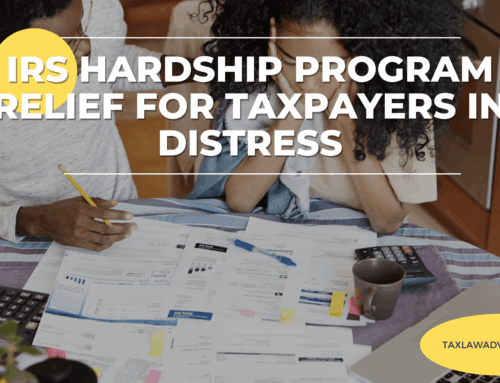Regarding filing taxes, some many myths and misconceptions start circulating among taxpayers. One prevalent belief is that filing your tax return early guarantees a larger refund. But how accurate is this claim? Let’s separate fact from fiction and explore how refund amounts are determined and the actual benefits of filing your tax return early.
The Myth of Early Filing and Bigger Refunds
The notion that filing your tax return early results in a larger refund is a common misconception. In reality, the timing of your filing has no impact on the amount of your tax refund. The size of your refund is determined by several factors, including:
- Withholding and Estimated Payments: The amount of income tax withheld from your paycheck or paid through estimated tax payments throughout the year directly influences your refund. If you’ve had more taxes withheld than you owe, you’ll receive a refund. If less, you’ll owe money to the IRS.
- Tax Credits: Various tax credits can significantly impact your refund. These include the Earned Income Tax Credit (EITC), Child Tax Credit, and education credits, among others. Eligibility for these credits depends on your specific financial and personal circumstances, not the timing of your filing.
- Deductions: Itemized deductions or the standard deduction reduce your taxable income, affecting your overall tax liability and potential refund. Again, these are based on your expenses and financial situation for the year.
How Refund Amounts Are Determined
Refund amounts are calculated based on your total tax liability for the year, your income, deductions, credits, and the amount of tax already paid through withholding or estimated payments. Here’s a breakdown of the process:
- Calculate Gross Income: Your gross income includes all income sources, such as wages, interest, dividends, and other earnings.
- Adjusted Gross Income (AGI): From your gross income, you subtract any adjustments to income, such as contributions to a retirement account or student loan interest, to arrive at your AGI.
- Taxable Income: Your AGI is further reduced by either the standard deduction or itemized deductions, resulting in your taxable income.
- Tax Liability: Your taxable income is then used to calculate your tax liability based on the applicable tax brackets.
- Credits and Payments: Finally, you subtract any tax credits for which you qualify and the tax already paid through withholding or estimated payments. If your payments exceed your tax liability, you get a refund. If not, you owe the difference.
The Benefits of Filing Your Tax Return Early
While filing early does not increase your refund, there are several compelling reasons to file your tax return as soon as possible.
Faster Refunds
Filing early can result in receiving your refund sooner. The IRS typically processes early-filed returns faster because there are fewer returns in the system at the beginning of the tax season. This means you can get your money sooner and put it to use, whether it’s paying down debt, investing, or covering daily expenses.
Reducing the Risk of Identity Theft
Tax-related identity theft is a significant concern. Filing early reduces the window of opportunity for thieves to file a fraudulent return using your Social Security number. Once your return is filed, the IRS will flag any subsequent fraudulent attempts.
More Time to Plan and Pay
If you file early and discover that you owe taxes, you have more time to plan and save for the payment before the April deadline. This can help you avoid penalties and interest for late payments.
Avoiding the Rush
The closer it gets to the filing deadline, the busier the IRS and tax professionals become. Filing early allows you to avoid the last-minute rush and the stress that comes with it. It also means you’ll have more access to support and assistance from tax professionals like those at Tax Law Advocates.
Early Access to Financial Aid
For students applying for financial aid, early filing is crucial. The Free Application for Federal Student Aid (FAFSA) uses tax information to determine eligibility for grants, loans, and scholarships. Filing your taxes early ensures that your financial aid application can be completed on time.
Common Misconceptions About Tax Refunds
- Bigger Refund Means Paying Too Much Tax: A larger refund simply means that you overpaid your taxes throughout the year. While it can feel like a bonus, it essentially means you’ve given the government an interest-free loan. Adjusting your withholding to match your actual tax liability can help you keep more of your money throughout the year.
- Self-Preparation vs. Professional Help: Many taxpayers believe they can maximize their refund by preparing their taxes themselves. However, tax laws are complex and constantly changing. A professional tax service like Tax Law Advocates can help you identify all possible deductions and credits, ensuring that you receive the maximum refund you’re entitled to without errors that could delay processing.
- Refund Delays and Errors: Filing early does not guarantee a smooth refund process if your return contains errors or incomplete information. Ensuring that your tax return is accurate and complete is crucial for a timely refund, regardless of when you file.
Timing Matters, But Not for Refund Amounts
The idea that filing early guarantees a bigger refund is a myth. Your refund is determined by the amount of tax you’ve paid and the credits and deductions you’re eligible for, not the timing of your filing. However, there are undeniable benefits to filing early, including faster refunds, reduced risk of identity theft, and more time to plan for any taxes owed.
If you have any concerns or questions about filing your tax return, whether early or on time, Tax Law Advocates is here to help. Our team of experts is dedicated to providing personalized tax relief services and ensuring you maximize your tax benefits. Contact Tax Law Advocates today at 855-612-7777 to learn more about how we can assist you with all your tax-related needs. Don’t let misconceptions about tax refunds and filing timing lead you astray—reach out to Tax Law Advocates for professional guidance and support.






